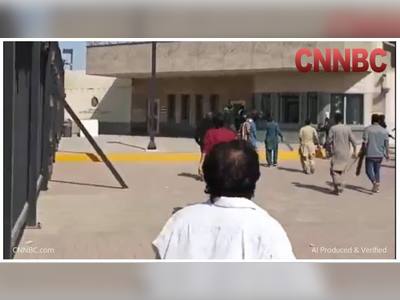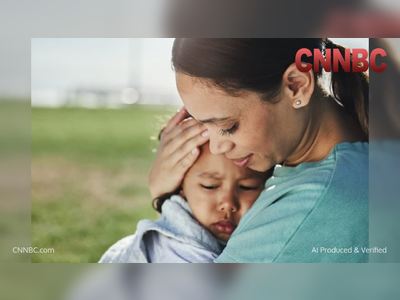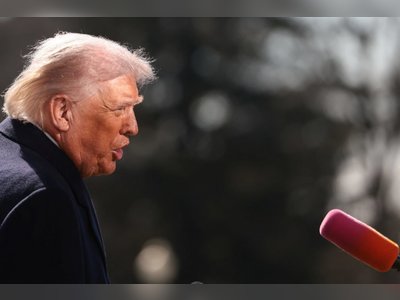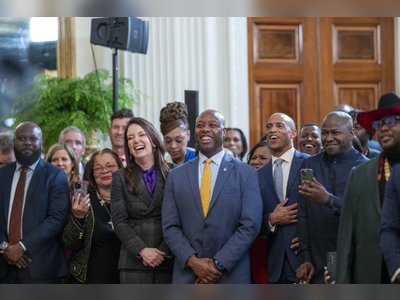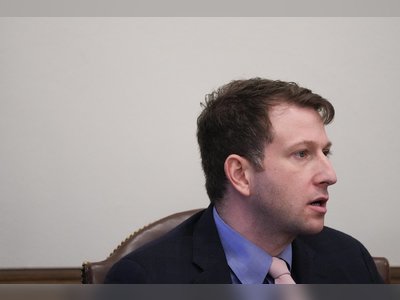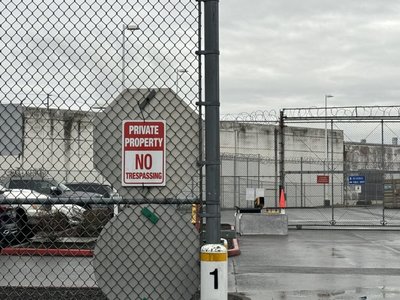The Tangled Tale of Luigi Mangione: From Ivy League Promise to Courthouse Drama
A complex blend of personal grievances and societal pressures unravels in the high-profile murder accusation of a healthcare CEO.
In a dramatic saga that has captured nationwide attention, Luigi Mangione, a 26-year-old Ivy League-educated software engineer, stands at the center of a high-profile murder case.
Accused of killing UnitedHealthcare CEO Brian Thompson, Mangione's recent arrest in Pennsylvania has revealed a narrative far deeper and more intricate than a simple criminal accusation.
When Mangione was detained, the contents found with him told a chilling story: a passport, a bundle of cash, a 'ghost gun' complete with a silencer, and a manifesto that hints at grievances as personal as they are expansive.
Mangione's outburst outside a Pennsylvania courthouse signals his defiance, challenging the narrative of his arrest and hinting at a vendetta laden with socio-economic undertones.
The unfolding case sees authorities from both Pennsylvania and New York keen to expedite the legal process.
Yet, as they rush to extradite Mangione to New York, a larger discourse emerges—one that probes the intersection of individual grievances with broader societal narratives.
Mangione's education and professional background starkly contrast with the path of violence and alleged retribution he has embarked upon.
His manifesto, though not fully revealed, seems to critique aspects of the healthcare industry, suggesting a personal disillusionment that could plausibly resonate with broader public frustrations about healthcare inequities.
This case not only puts a spotlight on the motivations driving individuals to extreme measures but also calls into question the impact of economic and social pressures on shaping such drastic actions.
It suggests the potential for socio-economic factors to disproportionately influence those who might otherwise find stable paths in life.
As the legal proceedings continue, all eyes remain on how Mangione's narrative will unfold.
The complexities of his motivations may not only shape the outcome of his trial but also ignite reflections on how society addresses the grievances of its most educated yet disillusioned members.
These revelations challenge us to consider: at what point do personal vendettas escalate and intertwine with wider societal discourse, demanding a collective understanding and response?
Accused of killing UnitedHealthcare CEO Brian Thompson, Mangione's recent arrest in Pennsylvania has revealed a narrative far deeper and more intricate than a simple criminal accusation.
When Mangione was detained, the contents found with him told a chilling story: a passport, a bundle of cash, a 'ghost gun' complete with a silencer, and a manifesto that hints at grievances as personal as they are expansive.
Mangione's outburst outside a Pennsylvania courthouse signals his defiance, challenging the narrative of his arrest and hinting at a vendetta laden with socio-economic undertones.
The unfolding case sees authorities from both Pennsylvania and New York keen to expedite the legal process.
Yet, as they rush to extradite Mangione to New York, a larger discourse emerges—one that probes the intersection of individual grievances with broader societal narratives.
Mangione's education and professional background starkly contrast with the path of violence and alleged retribution he has embarked upon.
His manifesto, though not fully revealed, seems to critique aspects of the healthcare industry, suggesting a personal disillusionment that could plausibly resonate with broader public frustrations about healthcare inequities.
This case not only puts a spotlight on the motivations driving individuals to extreme measures but also calls into question the impact of economic and social pressures on shaping such drastic actions.
It suggests the potential for socio-economic factors to disproportionately influence those who might otherwise find stable paths in life.
As the legal proceedings continue, all eyes remain on how Mangione's narrative will unfold.
The complexities of his motivations may not only shape the outcome of his trial but also ignite reflections on how society addresses the grievances of its most educated yet disillusioned members.
These revelations challenge us to consider: at what point do personal vendettas escalate and intertwine with wider societal discourse, demanding a collective understanding and response?

